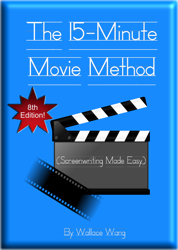No hero can succeed on their own. The only way a hero can succeed is through the guidance of a mentor. Ideally, this mentor should be someone the hero can immediately see can help them, but that would be boring. To make your story more interesting, always make the mentor someone who appears least likely to be helpful in any way.
In “The Hunger Games,” Katniss (the hero) is on a train on her way to the Capitol when she meets her mentor, Haymitch. She, like us as the audience, expect (and hope) that this mentor will be someone wise who can give Katniss useful advice. Instead, Haymitch turns out to be a drunk. When Peeta asks Haymitch for advice, he (and us as the audience) expect to hear something useful. Instead, Haymitch says, “Embrace the probability of your imminent death and know in your heart, there’s nothing I can do to save you.”
Where we expect a mentor to be helpful, Haymitch shatters that expectation by giving us a mentor who seems to have nothing useful to offer. Now the hero must struggle to deal with both the current problems of being sent to the Hunger Games as well as trying to get something useful out of this drunk mentor.
That creates a far more interesting story than if Haymitch were sober and earnestly caring about the hero with plenty of advice to help her survive and possibly win the Hunger Games.
In “Good Will Hunting,” the hero is a genius who has gotten into trouble with the police. An MIT math professor has gotten the boy out of jail but only if he agrees to meet with a therapist on a regular basis. So the hero’s mentor turns out to be a burned out psychology professor who works at a community college.
We would expect the mentor would be some powerful therapist with lots of status and recognition, not some community college professor who doesn’t seem to have done much with his life despite his education.
More importantly, we expect the mentor to try and help the hero. Instead, the mentor grabs the hero by the neck and threatens to kill him, which is the last thing we’d expect a mentor to do to help the hero.
When thinking of your own story, visualize the perfect mentor for your hero that we would expect. Then make sure we don’t get that mentor.
In “Silence of the Lambs,” the hero is an FBI trainee so we would expect her mentor to be an FBI veteran. Instead, her mentor turns out to be a notorious serial killer. Now the hero must not only find a serial killer, but she must also negotiate with another serial killer (her mentor) so she can succeed.
In “The Sting,” the hero is a con man looking for a mentor who can teach him the big con, which is a con game that fleeces extremely wealthy victims. We would expect such a mentor to be rich and living in luxury. Instead when the hero meets the mentor, the mentor is drunk and hiding in a run down room because his last big con failed and he had to flee from the FBI.
In “Star Wars,” Luke’s mentor is Obi-wan, but initially Obi-wan seems to be nothing more than a hermit living by himself in the desert. How a crazed hermit living in the desert can possibly help Luke makes Obi-wan a least likely mentor.
The lesson is that your mentor should never be someone you expect. The more unexpected your mentor, the more interesting your story so surprise us with the type of mentor your hero least expects to meet.
Sign up to take a FREE course about how to write scenes in a screenplay.

